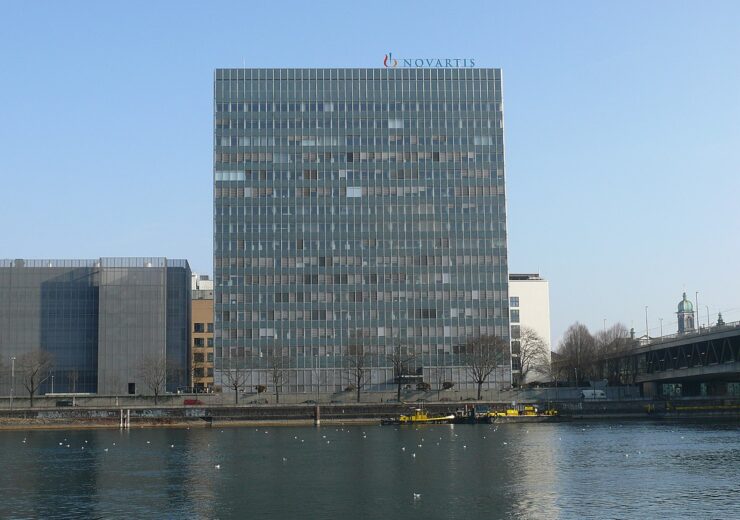The EC approval was supported by one-year data from the Phase 3 KESTREL and KITE studies, which evaluated the safety and efficacy of Beovu compared to aflibercept

Novartis headquarters in Basel, Setzerland. (Credit: Silesia711/Wikipedia)
Novartis has received the European Commission (EC) approval for Beovu (brolucizumab) 6mg to treat the visual impairment caused due to diabetic macular oedema (DME).
With the EC approval, Beovu 6mg is allowed for use in all 27 European Union (EU) member states along with Iceland, Norway and Liechtenstein, said the Swiss drugmaker.
The drug was previously approved in the EU, for the treatment of patients with wet age-related macular degeneration (AMD), granted in 2020.
In addition to the EU, Beovu was also approved for the AMD indication, in more than 70 countries, including the US, the UK, Japan, Canada and Australia.
Novartis Pharmaceuticals ophthalmology SVP and global development unit head Jill Hopkins said: “This approval marks a significant milestone for DME patients, many of whom are of working age and struggle with adherence due to the need to manage multiple comorbidities related to diabetes.
“KESTREL and KITE were the first pivotal trials to assess an anti-VEGF on six-week dosing intervals in the loading phase, suggesting Beovu may offer fewer injections from the start of treatment through year one. The EC approval of Beovu in DME may thus help address unmet needs.”
The EC approval was supported by one-year data from the Phase 3 KESTREL and KITE studies, that evaluated the safety and efficacy of Beovu compared to aflibercept.
The KESTREL and KITE studies enrolled a total of 926 patients across 36 countries.
In both the studies, treatment using Beovu has met the primary endpoint of non-inferiority in the change in best-corrected visual acuity (BCVA) from baseline versus aflibercept at year one.
Also, a less proportion of patient eyes treated with Beovu had intraretinal fluid, subretinal fluid or both at week 52, compared to eyes treated with aflibercept.
The most common ocular and non-ocular adverse events in KESTREL and KITE include conjunctival haemorrhage, nasopharyngitis and hypertension.
Novartis said that its regulatory applications for Beovu in this indication are currently being reviewed by the regulatory agencies in the US and Japan.
